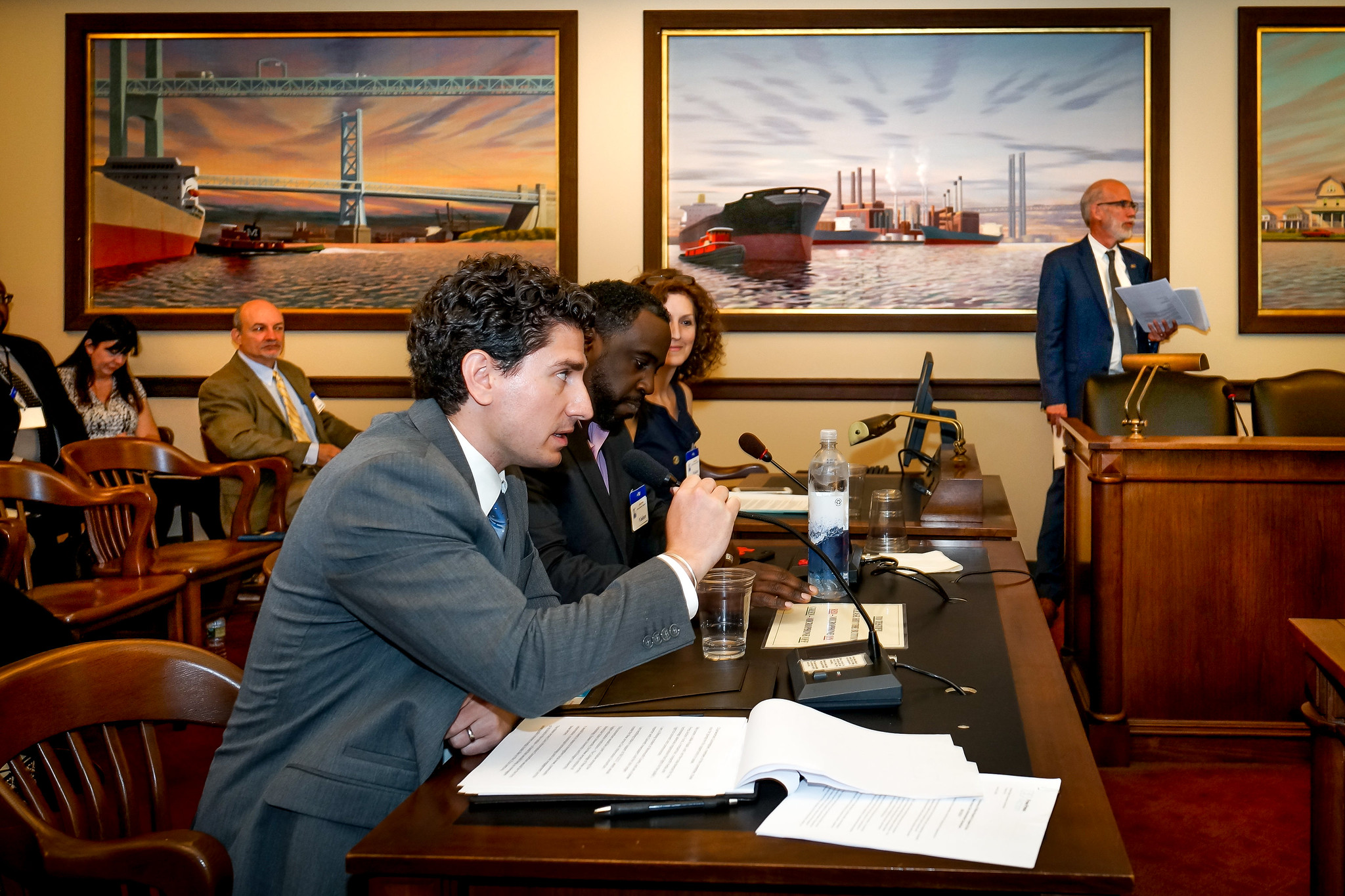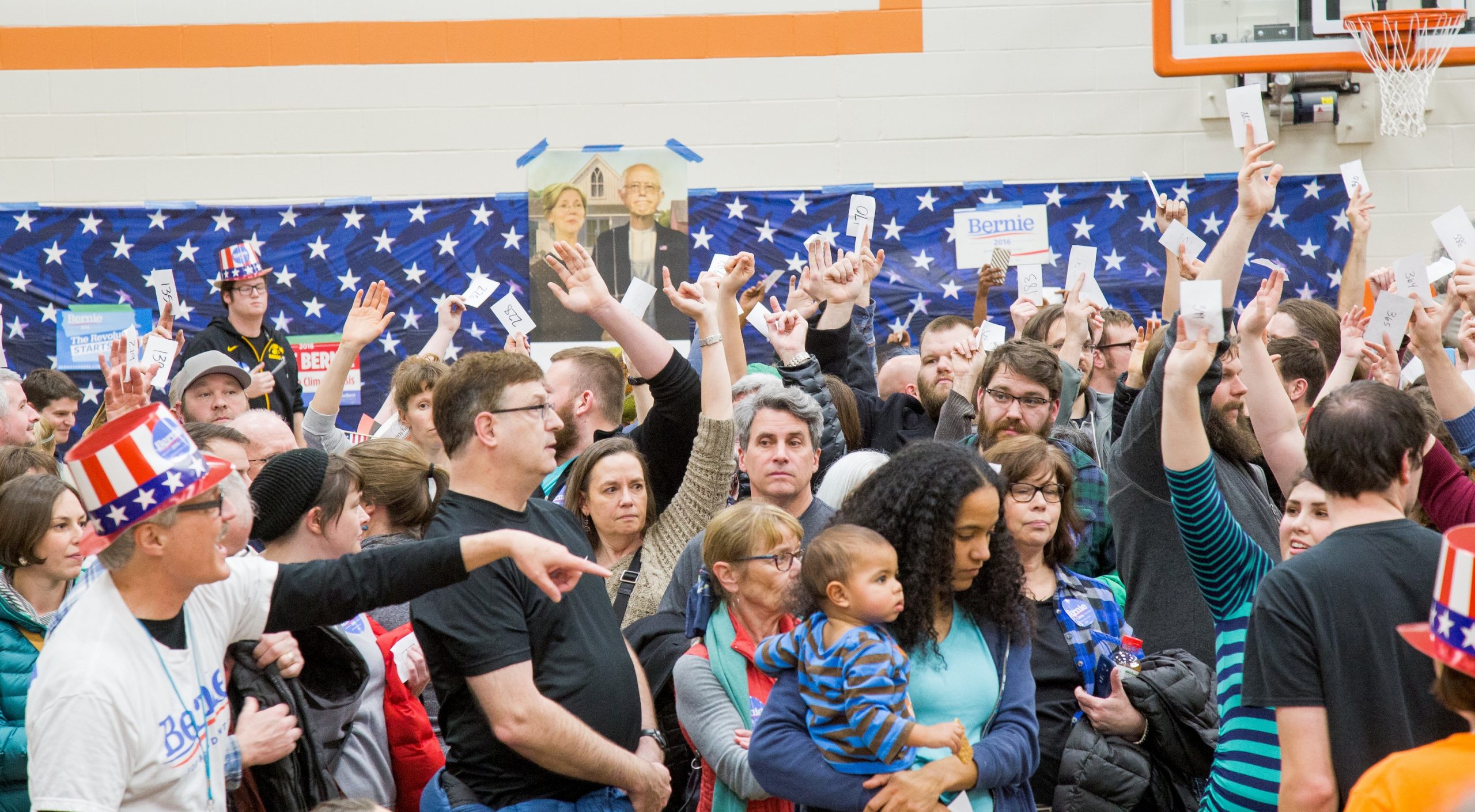Not only are people from the U.S. territories unable to vote or access government benefits, they’re also largely ignored by grant makers.
Type: Op-Ed
Political Violence, Threats to Civic Society, and a Game Plan for Philanthropy
This op-ed was written by Democracy Fund president Joe Goldman; read the full article on the Chronicle of Philanthropy.
Increasing attacks on pro-democracy advocates show that politicians like former President Trump aren’t the only ones at risk from violent political rhetoric.
The Time to Invest in Democracy Is Now, Not November
This op-ed was written by Democracy Fund president Joe Goldman, Open Society-U.S. executive director Laleh Ispahani, and JPB Foundation president Deepak Bhargava, about the All by April campaign, a movement of funders and donors who have pledged to move funds faster this year and support nonpartisan efforts to ensure the election process is free, fair, and representative. Learn more about the campaign at AllByApril.org and read the full op-ed at Inside Philanthropy.
Free, fair and representative elections are difficult to achieve under the best circumstances. As 2024 progresses, the good news is that one of the cornerstones of American democracy — the hundreds of nonpartisan, nonprofit organizations devoted to an inclusive, multiracial democracy — are already hard at work.
They need resources — now.
Nonprofit organizations perform essential election work in our democracy. In communities around the country, organizations help recruit poll workers, organize nonpartisan voter registration drives, combat misinformation, support local election officials and work to ensure that the diversity of our electorate is represented in our election process.
…Many donors do not realize that supporting democracy in an election year requires donations by the spring, not the summer or fall.
Read the full op-ed on InsidePhilanthropy.com.
Local Foundations Need Solid Local Journalism if They Hope to Advance Their Missions
First the good news: Philanthropy is starting to respond to the demise of local journalism with the urgency it deserves. In the past few years, major national efforts, such as the American Journalism Project, Report for America, and NewsMatch have generated well over $200 million in philanthropic giving to news organizations across the United States. NewsMatch’s annual gift-matching campaign, which kicked off November 1, raised a record $47 million in individual donations in 2020 alone.
Philanthropy’s Inauguration March: What the Real Work of Protecting Democracy Demands Now
After a heroic effort to maintain the integrity of our election system over the past year, Wednesday’s inauguration marks a key turning point, one that requires philanthropy’s continued focus on the health of our democracy.
Philanthropy and the Future of Local News

As businesses close, revenue from advertising is drying up and journalists are facing layoffs, furloughs, and the possibility of their newsrooms closing down—just when we need them most. In this moment, as our nation and our nation’s newsrooms face profound challenges, what happened in New Jersey holds lessons for all of us.
Cover Photo: Free Press Action Fund News Voices Director Mike Rispoli testifying in the New Jersey Statehouse (credit: Tim Karr) (Democracy Fund did not make grants or earmark funds to support Free Press Action Fund’s lobbying efforts).
Scaling Faith-Based Civic Engagement

Faith In/And Democracy is a pilot funding and learning initiative led by PACE to explore the ways faith and faith communities can support democracy and civic life. The following post is a reflection by The Democracy Fund’s Chris Crawford who offers a funder’s perspective on this pilot funding initiative.
The Iowa Caucuses were a disaster — and here’s why it shouldn’t worry Americans

Despite legitimate concerns about Iowa’s Democratic caucuses, Americans should rest assured that our elections are secure, accurate and fair.
Op-Ed: Trump’s Emergency Declaration Threatens Philanthropy’s Core Values
In November, I joined with 40 other foundation leaders to call on our colleagues across philanthropy to respond to unprecedented threats facing our democracy—threats to the independence of the special counsel’s investigation into Russian interference in the 2016 election and to the rule of law generally.
Less than three months later, our country is facing a new constitutional crisis that demands our leadership and resolve. We must not accept President Trump’s declaration of a national emergency to secure funding to build a wall on our Southern border. He is blatantly taking a page straight out of the authoritarian playbook and his action must not stand.
The President’s declaration demonstrates his disregard for our Constitution and his willingness to circumvent our system of checks and balances. Declaring an emergency when none exists sets a dangerous precedent for the rule of law. It is the quintessential example of the executive branch appropriating power to itself. Just as we cannot allow any president to weaken the independence of our system of justice, we must also not allow this president to unilaterally achieve his policy goals at the expense of the Constitution’s promise of parity between the co-equal branches of our government.
Read more from Joe Goldman at The Chronicle of Philanthropy.
New York Times Op-Ed: Is Trump Giving Authoritarianism a Bad Name?
This op-ed was written by Lee Drutman, senior fellow at New America, and Larry Diamond, senior fellow at the Hoover Institution, and Joe Goldman, president of Democracy Fund, about their recent report, Follow the Leader: Exploring American Support for Democracy and Authoritarianism. You can read the full op-ed here.
In the past two years, a wave of distressing commentary has stressed the fragility of American democracy and the potential, inspired by President Trump, for emerging authoritarianism.
But a year into the Trump administration, Americans are rejecting authoritarian alternatives to democracy. In a new survey by the Democracy Fund Voter Study Group, we found that the percentage of Americans who expressed support for a “strong leader who doesn’t have to bother with elections or Congress” fell to levels not seen since the mid-1990s. In particular, young people overwhelmingly reject authoritarian rule, despite concerns about a rising generation retreating from democracy (raised most prominently by Roberto Foa and Yascha Mounk).
Mr. Trump is almost certainly giving authoritarianism a bad name. Support for authoritarian rule declined most among Democrats and young people, while significantly increasing among Republicans.